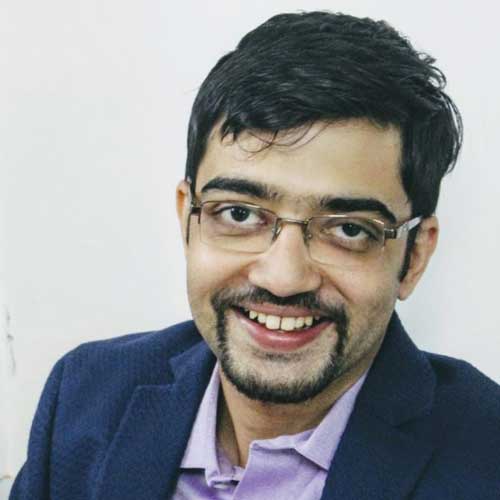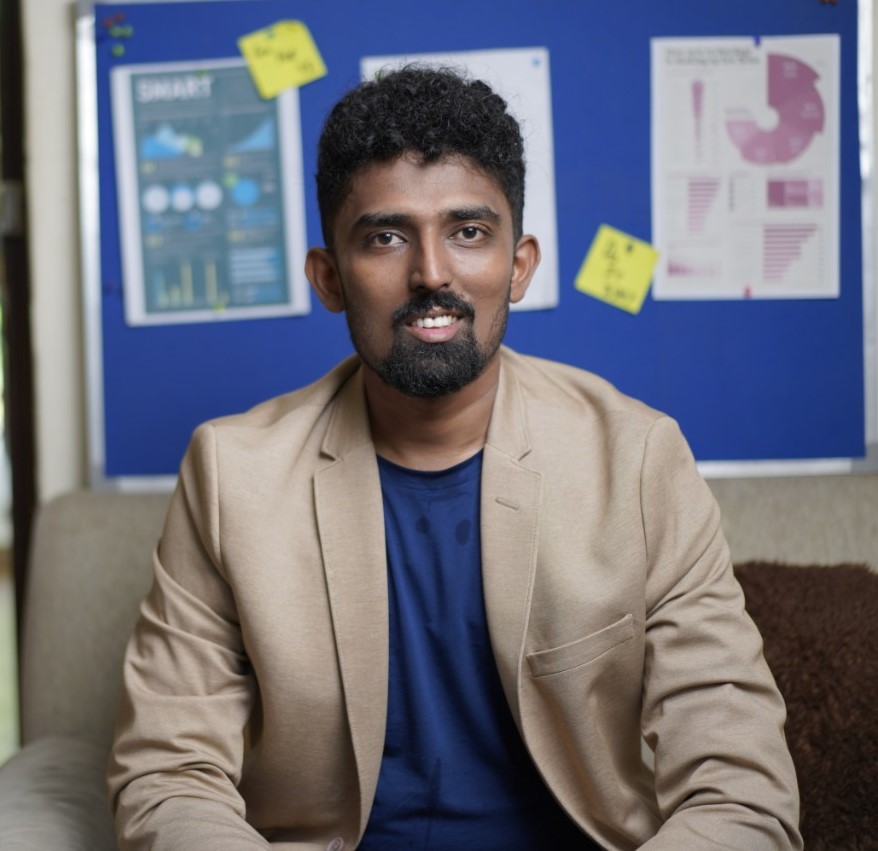Style
Date and Time
Are you?
Belief-systems which frequently mislead first-timers who attempt the judiciary exams
If I study hard over a period of time, I should clear the exam. If I still don’t, then it is out of my hands. After all, what else could I do?
I will start preparation in full swing in my final year or after I graduate.
I can sufficiently prepare for judiciary exams if I follow my college studies for the subjects which are covered in the LLB syllabus, at least till the 4th or 5th year.
I am a class topper. Nobody can tell me better than what I can already accomplish on my own. I will prepare on my own. If I fail, we will see then.
It is too early to start preparation now. I will first explore different career options, pursue different internships and then start preparing later.
I can borrow notes from others who have enrolled in a coaching class and take help from my friends who go to the coaching class.
I will get guidance from my senior or relative who has cracked the exam.
I will read books and Bare Acts - that is sufficient to crack the exam.
Destiny and luck are the only major components to crack a competitive exam such as judiciary - there is no scientific way to prepare.
Browsing through all the free content available on the internet/ YouTube will help be sufficient for my first attempt.
Several subjects are common across multiple states. Preparing for one State’s Judiciary will automatically help me crack other State Judiciary Exams as well.
Journey of an average law student who wants to crack the judiciary exam
First year:
This is too early to start, of course. I have 2 more/ 4 more years (depending on whether you are in 3 years or 5 years course)
Second-year:
Ok, now they are teaching some relevant subjects like IPC, CPC, CrPC, Evidence Act, so let me learn these from college teachers first, then I will join judiciary coaching later.
Third-year:
Yeah, now I need to start thinking about judiciary preparation, but I guess I still have time. I will start next month. No, I will start after the next exam. Ok, after Diwali. Fine, after New Year definitely etc.
Fourth-year:
I still have not started judiciary training. But I guess it’s ok. Maybe I should think of joining a judiciary coaching finally.
Fifth-year:
I have joined a judiciary coaching class finally. However, now I have only 18 months to prepare 40 huge subjects. It’s bigger than my entire law school curriculum to finish this in 18 months now, and I need to study for 12 hours a day! Ok, maybe I can do this. Let me try.
After 2 months:
It’s not happening. How can one study for 10 hours a day? I am getting depressed from staying in front of books and not being able to focus! My life is upside down, and still, I am not progressing fast enough. Maybe I should try again after graduation when I can focus exclusively on this. Also, this is the final year in college, and I should enjoy this year and not spend studying for 10 hours a day!
3 months after graduation:
All my friends are earning, dating, traveling, posting amazing pictures on Instagram, and what am I doing? Trying to learn CPC and TOPA notes, and I do not know where to start and where to end. Am I ready to study so much for the next 12-18 months? What if I don’t make it after all this effort?
What happens next
80% of judiciary-aspirants psychologically give up at this point. They may still appear in the exam, but they know in their heart that they have not put in the preparation that was needed. They still go through the motions to keep their family happy or to keep up appearances. But long before, they are already looking for exit options.
Can you relate to this pattern?
This pattern is an outcome of the belief systems highlighted above.
- These belief systems create a false sense of security. Intelligent candidates end up procrastinating the real work of preparation.
- Instead of giving you more time, you get less time to effectively prepare, which increases the risk.
5 steps to secure your judiciary preparation
#1 - State-focussed preparation
Every state has a different judiciary exam format. Even in states where some of the subjects are common, the types of questions and weightage to those subjects differ widely.
Therefore, preparation needs to be state-specific. Studying the subjects in your LLB syllabus or taking additional classrooms without focus on state-specific papers does not prepare you for the different state judiciary exams.
Identify the exams you will attempt before you start preparing.
A detailed trends analysis needs to be conducted for those states based on at least 10 years’ question papers.
You will then need to customise your preparation based on the types of questions and the weightage on them in the respective state judicial services exams.
Also, leaving You will also need to develop a strategy for cracking.
#2 - Measurement-based approach at all times
You may have studied for 10 hours, but how many questions from that portion can you answer in the real exam?
If you have read the books and bare acts, say in Code of Civil Procedure, but cannot answer questions on it in a mock, your preparation is incomplete.
Most candidates deploy incorrect or suboptimal preparation techniques for years without ever finding out how to improve.
They study for months and years from books, bare acts, and notes but do not have any idea about where they stand with respect to the competition.
What if there was a yardstick which assisted you towards assessing at which stage of your preparation you currently stand?
What if you followed this every day to track your progress and improve your effectiveness?
A measurement-based approach is necessary. You will need to periodically iterate your strategy based on the measurements.
#3 - Appropriate focus on the ‘Mains’ exam
If you want to crack the mains, you need to prepare to write subjective answers from a very early stage in your preparation. Some of the mistaken beliefs that lead to failure in the mains exams are:
- I will refer to model answers - this does not improve your own writing skills.
- I will take up a legal writing course - this does not enable you to prepare and write better answers for judiciary exams.
- I will prepare for mains after I first crack the prelims - if you manage to crack the prelims, this one belief will come in your way.
- I am learning the answers every day - memorization does not enable you to reproduce during the exam, especially when questions are frequently changed.
College-answer writing skills do not equate to judiciary mains exams skills.
To improve your ability to write answers, you need to practice real answer-writing every day and get corrections. Imagine doing that for a few years. Where will you stand in comparison to those who do this work last minute?
#4 - Target-based preparation customised to your abilities
Your strengths and weaknesses and your aptitude for grasping various subjects in the syllabus are vastly different from another candidate, whether it is your batchmate or someone who has been practising for a couple of years.
Therefore, a personalised study plan which is target-based is very important. How is this done? Usually, such a plan is created after attempting a diagnostic test with the help of someone who has coached others to successfully crack the exam.
#5 - Selection of the right kind of coaching for guidance
The journey for the exam is long and tiring. Ideally, candidates need to study for 14-15 hours for 1.5 years at least merely to complete the syllabus.
They need guidance, but all forms of guidance are not the same.
For example, it will be very difficult to crack the judiciary exams through Board Exam coaching or school tuitions. Preparation to crack a competitive exam needs to be more specific.
How to select coaching that fits your goals?
- Detailed trends analysis to save you time
- Guidance on a personalised strategy and study plan
- Frequent interventions to motivate
- Repository of materials to go through during self-study
- Answer-writing feedback and corrections
- Intensive classroom program
- Rich variety of tests to track your own daily and monthly progress and see where you stand with respect to the competition
For those who want to first try it on their own before you take coaching, please read this page again.
This is the most difficult exam that you have probably ever attempted, and there is no comparison with any college or other exam.
For those of you who attempted the CLAT exam, it does not even come close to the kind of competition and difficulty that you will face in the judiciary exam.
It is also unlikely that we have a track record for this kind of intensive self-preparation for 14-15 days. For most candidates, the maximum time that they have spent preparing is about 6-8 hours per day over a period of 10 days to a month.
If college or CLAT exams were a sprint, this is an ultra-marathon, with more difficult competition and fewer seats.
Therefore, the real question is - when should you take guidance, what is the guidance that you need and how to select the right coaching class.
Bonus Step: Preparation for a backup career option
As it is a competitive exam, there is never a 100% guarantee that you will crack the judiciary exam.
What should you do if you are unable to?
You may want to shift to a different career, or work with a senior, in a job or simply freelance on a part-time basis, to meet living expenses as you prepare for a better attempt.
A key challenge here is to maintain your confidence and motivation.
We will help you identify how to prepare for backup options and what work you can perform, in case you need to drop out a year for a second attempt.
Agenda for the workshop
- How to Create the Mindset for Judiciary Preparation
- Overview of competition and upcoming state judiciary exams
- Which states should you attempt the exam for?
- How toppers make their preparation strategy
- How to customise your preparation strategy for specific States
- Most common mistakes made by law students while preparing for prelims and mains and how to avoid them
- When should one start preparing for the interview stage
- Insights from past years’ question papers of select States
- How to use a Trends Analysis to create a preparation strategy
- How to prepare for state-specific subjects (Local Laws)
- How to prioritise General Knowledge and Languages in one's judiciary preparation
- When should you start studying?
- How to manage stress and anxiety
- How to manage time while studying
- How to know that you are on the right track
- How to stay connected to your dream
- What to do if you deviate or fall off from the plan
- How to divide time
- Daily
- Weekly
- Monthly
- What does a model study plan look like?
- How many times should you attempt the judiciary exam? Should you have a backup option?
- Which backup options should you prepare for?
- How to prepare your own roadmap
- Pros and cons of self-study
- How can one benefit from a coaching class, if at all? Or how can a good mentor/ coaching class help?
You will also get access to a mock (prelims format) and a call for the creation of a customized roadmap.
The session will be taken by:
The session will be taken by:
- Harsh Jain, Co-Founder and Chief Growth Officer at Lawsikho, UGC-NET JRF scholar who has coached over 50 candidates to successfully crack judiciary exams in Gujarat, UP, Jharkhand, Punjab, Karnataka, Rajasthan, and Maharashtra
- Shweta Devgan, Project Lead for Test Prep Courses at Lawsikho (NLS-2012 alumnus), a mentor having a track record of successfully training several candidates for UPSC, Other Government Competitive Exam and CLAT
- Abhyuday Agarwal, Co-Founder and COO, Lawsikho
Money-back guarantee
We are offering a full money-back guarantee if you don’t find the workshop beneficial to you, subject to all of the following conditions being satisfied:
You must attend the session live for the entire duration. If you watch a recording or attend the session for, say, 90 minutes out of 3 hours, you will not be eligible to get the refund.
You must perform the exercise within the due date specified. If you submit after the due date (i.e. 48 hours), you will not be eligible for a refund. The exercise must be completed properly. It must not be incomplete or submitted merely with the intention to claim the refund.
You must claim the refund within 2 days of submission of the exercise.
Course Plan
Above prices are inclusive of all applicable taxes and charges.
 Standard
Standard
Here are some of our faculty members
Note: This is an indicative list of our guest faculty members and not an exhaustive list. We may change the faculty members at any point based on availability.
FAQs
Unless specifically mentioned otherwise, none of our courses is recognised, accredited, or validated by any university, government or third party. We consider government regulatory standards as an impediment to offering high-quality courses we offer at an affordable cost, offering informal, non recognised courses rather than collaborating with formal universities.
This course is offered as a skill development course by a private company. LawSikho is India’s leading online legal education provider and provides high-quality legal courses that teach you how to do practical legal work as required by the industry.
For any recruiter or client, what matters the most is whether you possess the relevant skills to match their needs and serve their interests. We will train you in rare and important skills that are highly in-demand and our initiative is one of a kind.
Experts review the syllabus and course content for all the courses. These experts are drawn from law firms and the industry at large. The course is conceptualised, coordinated and marketed by LawSikho, a venture that aims to make justice accessible to people from all walks of life through access to superior legal knowledge.
The legal industry knows and respects our work, and they know that anyone who finished our course and obtained certification has a certain level of knowledge and skills. If nothing else, you will be appreciated for the knowledge and skills you would acquire through our courses and would be able to demonstrate after due completion.
We recommend that you should have completed your Higher Secondary / Class XII from a recognized Board / University. In the case of foreign nationals, you should have completed the equivalent of Higher Secondary in India in your respective country. You should also be comfortable with the English language and using a computer. However, we have no formal pre-qualification requirements because we are not a University or college. Anyone who wants to learn is welcome to join our courses.
Students of LawSikho will be provided hard copy materials within 30 days of your course commencement date.
However, online classes, videos, regulatory updates and periodic upgrades to the courses cannot be included in the hard copies. We will provide you with hard copy material for all important chapters. We keep adding many new chapters from time to time and there are restrictions on page numbers so all online material cannot be available in hard copy. We would keep adding new material online from time to time, so please do not expect all such material to be made available in the hard copy also. You can use the hard copy materials for your reference, however, we recommend that you do not exclusively rely on hard copies for cracking the assessment test and the exercises. Please refer to the online library of materials from time to time.
Note: We will send hard copy material through our service partners. We have three service partners.
1. Indian Speed Post (Provides delivery ‘anywhere in India’ under contractual service)
2. Delhivery
3. Trackon Couriers Pvt Limited
If our service partners do not have a presence in your area and want to get the hard copy, you can send us a specific request.
LawSikho will not be responsible if the speed post bounces back or hard copy material is not delivered. We will levy the courier charge on you in such a scenario.
Please visit the respective course page to learn more about the hard copy study material policy of that course.
If international students require hard copy material, they need to share their correct address and we will let them know the cost of the courier which they need to pay and then the hard copy will be dispatched. This is the process because the cost of an international courier is very high compared to the domestic courier within India (for domestic courier we have no additional charges). Some international students provide us with an Indian address for couriering hard copy material. In those cases, we charge nothing extra for the courier.
A person can visit the official website of LawSikho and find the relevant course and see the course syllabus, learning objectives and even a list of weekly exercises. You can also subscribe for free sample material. If more clarification about the course is needed, feel free to chat with our online chat specialist. You could also call us on our landline number, +91 11 40845203 for further assistance.















 ADDICTIVE LEARNING TECHNOLOGY LIMITED
ADDICTIVE LEARNING TECHNOLOGY LIMITED












